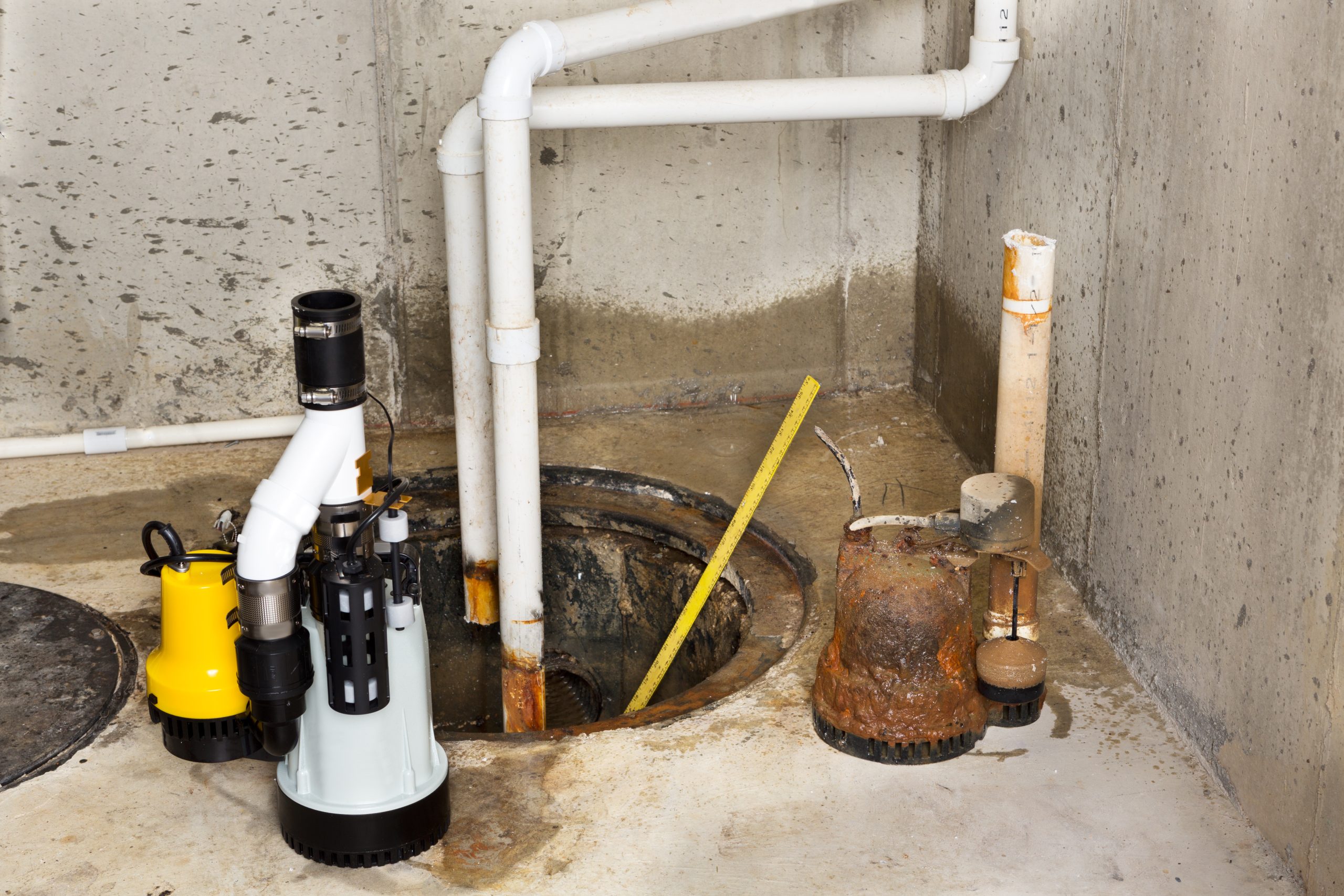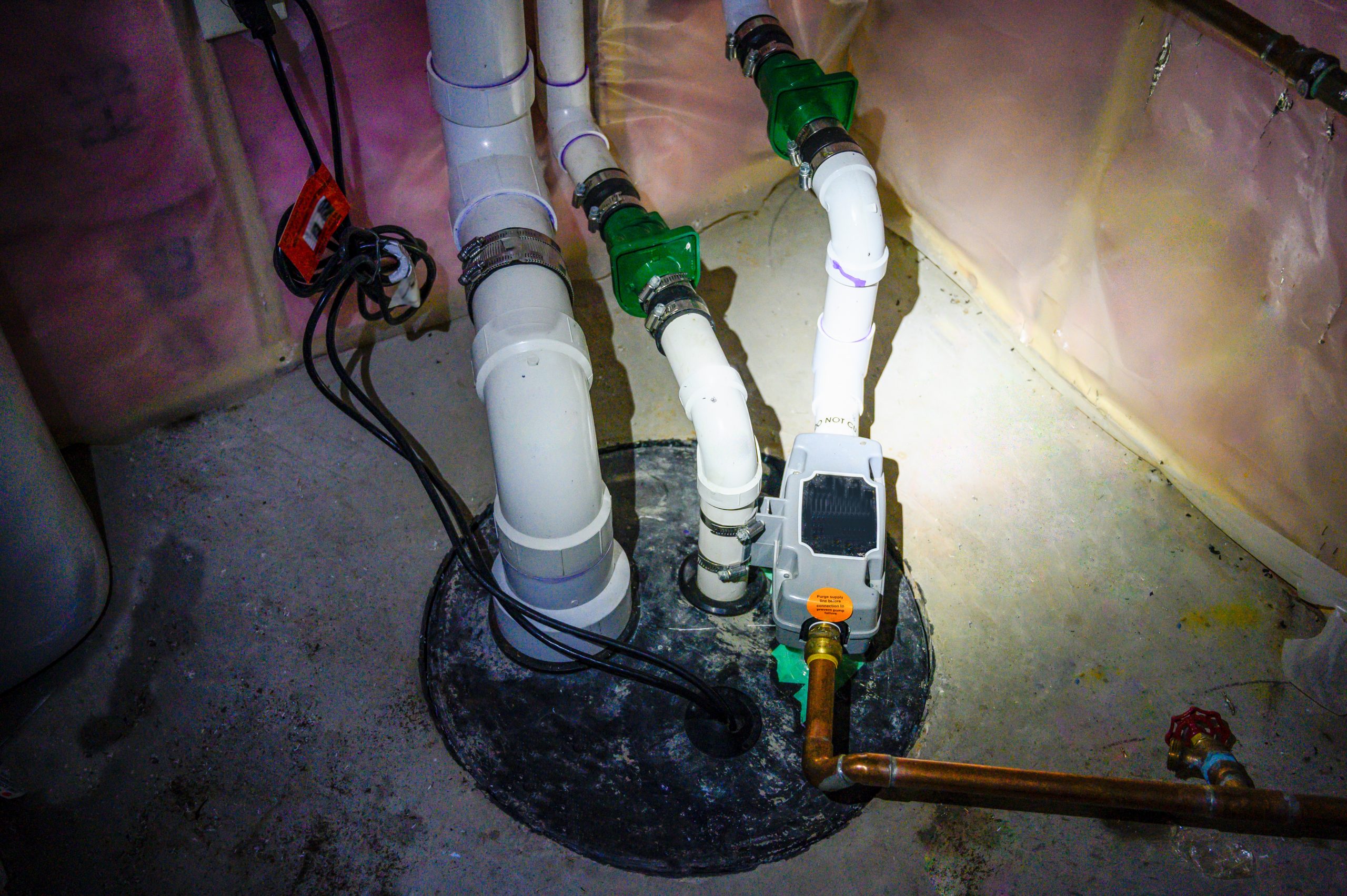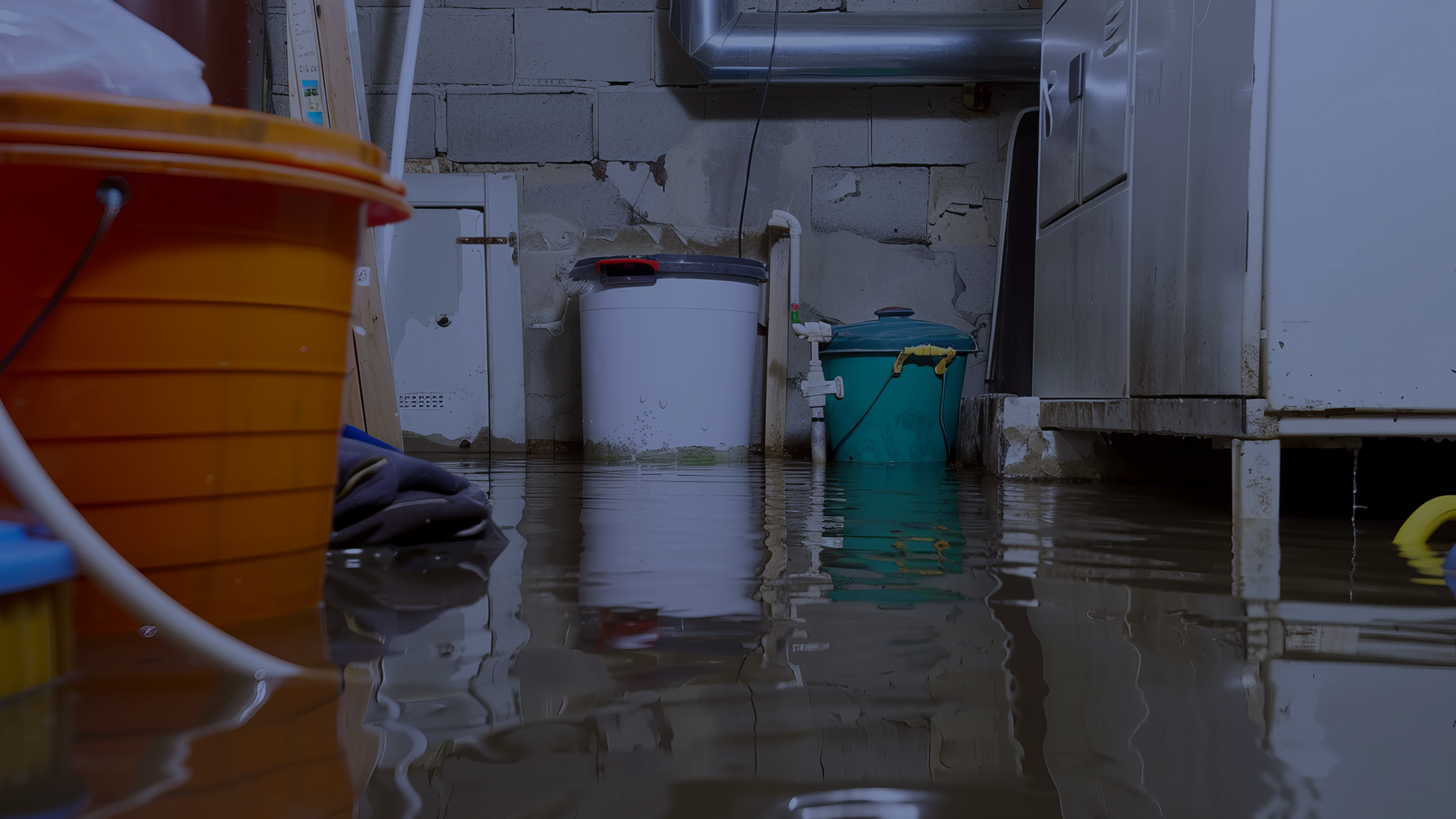For many, basements are cherished home areas for relaxing, playing, and storage, as well as for important utilities such as furnaces and water heaters. A downfall to this extra space is the potential for flooding, especially during heavy rains or snow melts. A reliable sump pump system is one of the best defenses against basement flooding. We will explain the essential aspects of sump pumps, preventative maintenance, backup solutions, and more.
Why Are They Important?
To prevent flooding, a sump pump is installed in the lowest part of a basement or crawlspace. It collects water that accumulates in a pit, usually a specially constructed pit where water is channeled through drains or natural grading. Once the water reaches a certain level, a float switch on the sump pump activates, pumping the water out of the pit and away from the home, typically to the curb or a designated drainage area.
The importance of a sump pump cannot be overstated. It helps keep your basement dry, protecting your home from water damage that can lead to costly repairs. Additionally, it helps maintain a healthier home environment by preventing mold and mildew growth, which can result from persistent dampness.
The Benefits of Regular Sump Pump Maintenance
Like any other essential home system, your sump pump requires regular maintenance to operate effectively. Annual inspections are recommended to check for wear and tear, ensure the pump is sized correctly for your needs, and verify that all components function properly.

Regular maintenance can prevent unexpected failures during critical times, such as heavy rains and flooding. A well-maintained sump pump system provides peace of mind, knowing your basement has another layer of protection. Routine maintenance can extend the lifespan of your pump, saving you money in the long run.
Backup Solutions for Added Protection
Power outages are common during severe weather, and a sump pump that relies solely on electricity can fail when you need it the most. This is where backup sump pump solutions come into play. Battery-powered backup pumps are a popular choice, providing additional protection by operating even when the primary pump loses power.
Signs Your Sump Pump Needs Repair or Replacement
Knowing when your sump pump needs attention is crucial for maintaining its effectiveness. Common signs that your sump pump requires repair or replacement include unusual noises, continuous running, irregular cycling, and visible rust or damage. If your pump is over seven to ten years old, it might also be time to consider a replacement.

A professional inspection may also inform you that your pump is overwhelmed and undersized for your situation. If you notice your basement flooding despite the sump pump running, it might not be able to handle the volume of water. In that case, upgrading to a more powerful pump or adding an additional pump may be the solution.
Choosing a Professional for Your Sump Pump Needs
Hiring a licensed professional is essential when it comes to sump pump installation, maintenance, or repair. Experienced plumbers ensure the system is correctly installed, compliant with local codes, and tailored to your needs. They can also provide valuable advice on your home’s best pumps and backup systems.
Additionally, professional services often come with warranties, ensuring that your investment is protected. By choosing a reputable company like Schwickert’s, you benefit from expert knowledge, high-quality service, and a commitment to keeping your home safe and dry.
Why Choose Schwickert's?
When it comes to sump pumps and plumbing needs, not all professionals are created equal. Schwickert’s stands out for several reasons:
By choosing Schwickert’s, you are ensuring that your sump pump and other plumbing systems are in the hands of professionals who care about the safety and well-being of your home. Contact us today to schedule an inspection or service appointment and experience the Schwickert’s difference.

